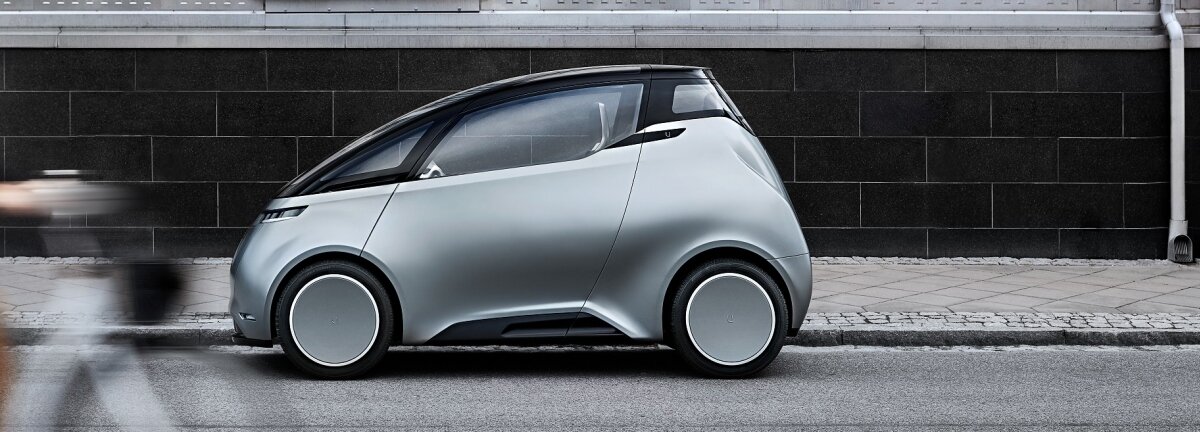Uniti cars: From Sweden to Silverstone, the electric car revolution

The demand in electric cars is increasing. Elon Musk has said he wants electric vehicles to be successful even if it means Tesla going bust. Swedish automotive start-up Uniti’s first eco-friendly city car will be built at a facility in Silverstone Park, home of the British Formula 1 Grand Prix. This will be their first production site in the world, and the first fully-digital electric vehicle production site in the UK. Roll out of the cars will start in 2020.
The Silverstone plant will serve as a model for "digital twinning" and Uniti will be able to set up multiple plants in different locations worldwide, and manufacture its cars using a fully automated production line in each specific plant. The company hope this can be utilised to cut out the environmentally damaging process of transporting cars to different locations from centralised production facilities.
Sally Povolotsky, Vehicle Development Director at Uniti, tells us about the importance of business clusters and how industries must stop working in silos.
Tell us about Uniti
Uniti started as an open innovation research project at Lund University in Sweden. The team wanted to create a vehicle that made sense for electric vehicle technology, today’s consumer expectations, urban mobility patterns and the big environmental challenges we are facing as a society. Our goal was to develop innovative, attractive electric vehicles that makes sense to the mass market, for the betterment of society, designed to achieve seamless human interaction.
By using careful design and optimised manufacturing processes, Uniti’s carbon footprint will be dramatically reduced compared to current alternatives. We designed Uniti with the driver at its core, instead of just designing around the same mechanical properties of the combustion engine era. The result is a lightweight electric car that boasts an intuitive user experience on a platform that is highly scalable, emitting a lot less carbon over its lifecycle by ensuring sustainable principles are followed.
Research in the Design Economy 2018 has shown businesses within clusters benefit. How do you think Uniti will benefit being a part of the Silverstone Technology Cluster?
The Silverstone Technology cluster has a very high density of the very specific competences needed for this method of production, as well as mature processes. We feel this is the perfect eco-system to deliver the Uniti One. We need to deliver the product to our customers on a prompt timescale, with a quality meaningful to the expectations set. The best way to reach that is to conduct the next phase of industrialisation at Silverstone following Industry 4.0 philosophies. The UK’s approach to vehicle production and its focus on light-weighting and innovation in advanced materials, EV’s and Autonomy, is an ideal model for electric car production globally. In addition, the local economy will benefit from the Cluster, from local employment of professionals and staff for the R&D side on site at Silverstone, through to the contractors, supply chain, innovators and test bed centres.
Design Economy 2018 research showed that design has grown in some areas, however, design remains widely underused across the country, especially in areas where design could have an impact on the local economy. How do you think this issue could be addressed?
I think there is a general misunderstanding of how design, connected and collaborative methods can have a huge impact on so many facets of industry. Industries must stop working in silos and ignoring the importance of clever user focused design and the impact this may have on reducing engineering programme timelines and resources. Collaboration is the key, designers working with engineers, side by side, using research, focus data and benchmarking to make a product respond to need and demand, or creating such, by smart thinking!
Design Economy 2018 research found that there is a demand for a more diverse range of design skills outside London, how do you see Uniti meeting this demand?
There is a huge need for decentralising design outside of London and we are excited to be talking with Craig Callum at the National Transport Design Centre, based at Coventry University’s campus. The Midlands have attracted the best in automotive and mobility design for a long time, mostly nurturing through post graduate programs within the automotive OEMS in the UK. However, as we move more into technology, User Experience (UX), High Level HMI (Human Machine Interface), we need to attract talent to fill these gaps and as mobility diversifies more into technology we have to embrace the younger generations to think outside the box and I don’t think the demand will change, just the focus and geography of the solution will shift.
Subscribe to our newsletter
Want to keep up with the latest from the Design Council?
